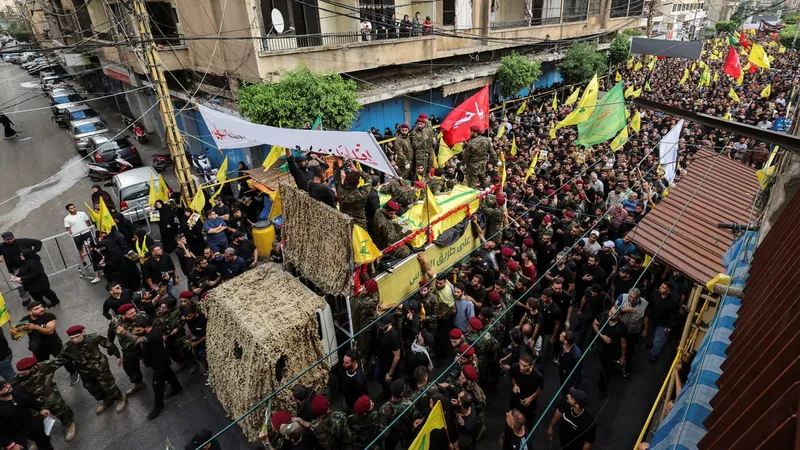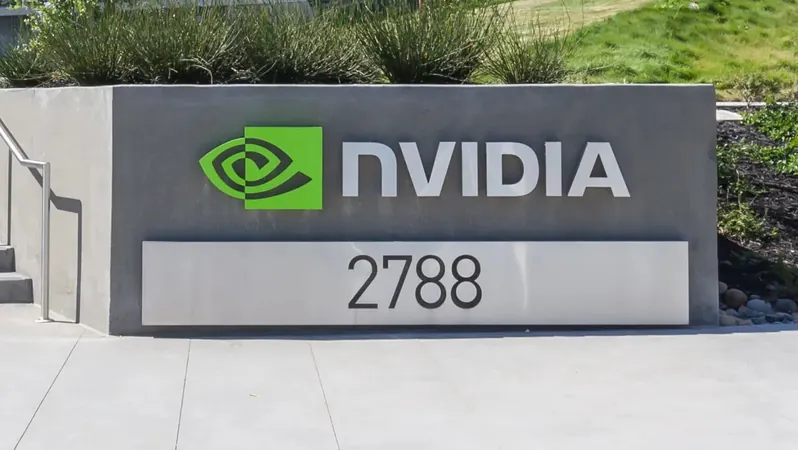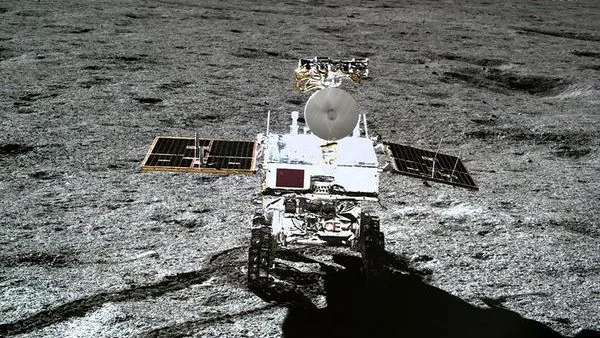
Israel Intensifies Strikes Against Hezbollah: Is All Out War Inevitable?
2024-09-22
Israel Intensifies Strikes Against Hezbollah: Is All Out War Inevitable?
In a gripping escalation of violence, Israeli President Isaac Herzog has come to the forefront defending the Israeli military's recent strikes against Hezbollah, attributing the necessity for such actions to the militant group's relentless rocket attacks on Israeli territories. These relentless assaults, Herzog claims, have driven over 100,000 residents from their homes along Israel's northern border, leaving communities shattered and on edge.
During an appearance on CBS's "Face the Nation," Herzog asserted, "Hezbollah has been attacking us on a daily basis, demolishing our villages and towns. Life has been shattered in our northern border region. No one in America would accept such a situation as normal." This statement encapsulates the heightened sense of urgency felt by Israeli officials as tensions rise in the region.
On Friday, Israel executed a significant military strike in Beirut, targeting and killing prominent Hezbollah leaders. The violent response from Hezbollah was swift; deputy chief Naim Qassem proclaimed that the militants are "ready to face all military possibilities" in their confrontation with Israel. This rhetoric suggests a potential for further escalation, as both sides refuse to back down.
Adding to the chaos, earlier in the week, Israel was linked to a sophisticated intelligence operation that led to the death of at least 37 Hezbollah militants in Lebanon. Reports indicate that the operation involved detonating devices through signals transmitted to Hezbollah's communication devices. Although the Israeli government has refrained from officially commenting on this incident, sources suggest it was a meticulously planned assault aimed at crippling the militant group's leadership.
In the face of severe repercussions, Herzog has dismissed allegations that Israel is intent on provoking a larger war, reiterating the desire for a diplomatic resolution. "This is jihadism at its best, and that's what we are fighting," he stated, emphasizing Israel’s commitment to national security while also expressing a desire to avoid escalation into all-out war.
Tensions in the region are reaching a breaking point, as the U.N.'s special coordinator for Lebanon, Jeanine Hennis, warned that both sides stand on the "brink of catastrophe." She underscored the futility of military action, urging for diplomatic dialogue instead.
The conflict has reverberated through Lebanon, with Iranian Ambassador to Lebanon Mojtaba Amani, recently wounded during Israeli bombings, proclaiming that his injury would stand as a badge of honor in solidarity with the Lebanese people amid their ongoing struggle.
Meanwhile, Hezbollah's aggressive strategy led to a barrage of around 150 rockets, cruise missiles, and UAVs targeting cities in Northern Israel, including Haifa, marking one of the most significant escalations since the onset of the Gaza conflict nearly a year ago. In retaliation, Israeli Defense Minister Yoav Gallant announced that Israeli forces struck nearly 300 Hezbollah targets over the weekend in a bid to restore security and allow displaced civilians to return home.
Israeli Prime Minister Benjamin Netanyahu issued a stern warning, stating, "We have inflicted a series of blows on Hezbollah more severe than it ever imagined. If they have not understood the message, I assure you, they will."
In a parallel development, Israeli forces raided the Ramallah bureau of Al Jazeera, ordering a temporary closure, which has sparked outrage among Palestinian journalists and raised alarms over press freedom in conflict zones.
As this violent cycle continues, unsettling reports indicate that only half of the 97 hostages held by Hamas are still alive, according to Netanyahu. With rising calls for a cease-fire amidst chaos, the region’s future remains uncertain as both sides prepare for what could become a broader conflict.
Stay tuned as we continue to monitor this evolving situation – is peace still a possibility, or is war on the horizon?


 Brasil (PT)
Brasil (PT)
 Canada (EN)
Canada (EN)
 Chile (ES)
Chile (ES)
 España (ES)
España (ES)
 France (FR)
France (FR)
 Hong Kong (EN)
Hong Kong (EN)
 Italia (IT)
Italia (IT)
 日本 (JA)
日本 (JA)
 Magyarország (HU)
Magyarország (HU)
 Norge (NO)
Norge (NO)
 Polska (PL)
Polska (PL)
 Schweiz (DE)
Schweiz (DE)
 Singapore (EN)
Singapore (EN)
 Sverige (SV)
Sverige (SV)
 Suomi (FI)
Suomi (FI)
 Türkiye (TR)
Türkiye (TR)